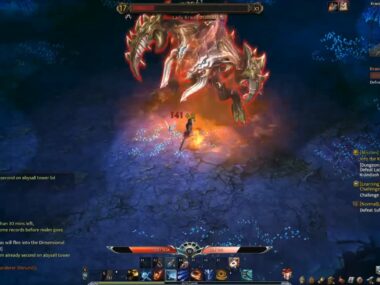I’ve been following Star Citizen for years. I can’t pretend the situation feels normal. They’ve hit a billion dollars in revenue. They might cross six million accounts this year, maybe even this month. Supporters frame this long development cycle as proof of unprecedented ambition. They say building something this groundbreaking takes time and money because no one has done it before.
I respect ambition. I love big ideas. Ambition doesn’t excuse chaos. It doesn’t erase the responsibility to manage a project well.
At some point, we have to ask whether this is still development or if it has turned into a lifestyle for the company and the community supporting it.
From where I sit, it doesn’t look like a temporary production pipeline anymore. It hasn’t for a long time. It looks like a permanent organizational machine built to sustain itself, not finish the game.
The Structure Doesn’t Match a Project With an End Date
There’s a pattern in real game development: you hire up, build, ship, then scale down as phases complete. Not because people are disposable, but because projects naturally evolve. Different skill sets matter at different times. Budgets and teams shift accordingly.
Star Citizen flipped the script. The longer it goes, the bigger the studio infrastructure becomes. They’ve built studios across multiple countries. They’ve tied their future to constant expansion, organizationally and financially. That’s not how traditional projects work. That’s how ongoing institutions work. Governments. Banks. Religious organizations. Social platforms.
All of it runs on players spending real money for digital items they do not own. That’s the part that baffles me. The economic model depends on constant belief, constant purchases, and constant hope that the next patch finally unlocks the future everyone’s been promised.
Breaking Every Rule and Calling It Innovation
People compare Star Citizen to NASA. But… NASA didn’t build multiple rocket factories just because it could. NASA didn’t redesign the moon halfway through. NASA had milestones, deadlines, and a finish line. They had a schedule because space doesn’t bend for vibes. Rockets require discipline.
Star Citizen’s development breaks every rule you’d treat as “sound” project management. Endless scope creep. Perpetual refactoring. No clear finish line. Communities cheering it on as if time and cost are proof of genius, not warning signs.
When supporters say, “No one has done this before,” they’re right. Not always in the romantic way they think.
Sometimes no one has done something before because it doesn’t work.
What Happens When (If) the Game Ships?
Here’s the uncomfortable reality I can’t shake: If Star Citizen ever “releases,” the structure they’ve built collapses under its own weight.
You don’t need hundreds and hundreds of staff across multiple countries to maintain a finished product. So either:
- The layoffs will be massive, or
- They never really intend to reach a true “end state” at all
That second possibility feels more realistic. The game’s survival depends on not being done. Perpetual momentum. Perpetual fundraising. Perpetual promise.
This looks less like game development and more like a business model wearing a development mask.
Admiration, Concern, and Honesty
I get the dream. Truly. A living galaxy simulator? Player-driven economy? Massive ambition? It’s intoxicating. There’s a version of this where Star Citizen becomes one of the most impressive feats in gaming history.
There’s another version where it becomes the most expensive monument to sunk-cost psychology we’ve ever seen in entertainment.
The truth probably lives somewhere in the middle. Beautiful vision tangled in messy execution. Passion overshadowed by drift. A project too beloved to finish and too large to control.
Star Citizen doesn’t feel like a game in development. It feels like a permanent construction zone that grew into a city. No one knows how to turn off the lights without the whole thing going dark.
This isn’t cynicism. It’s perspective rooted in decades of watching how software evolves, succeeds, and sometimes spirals. I don’t root against dreams. But… dreams still need blueprints. Ambition still needs boundaries. Projects still need finish lines.
Star Citizen built a universe. I just hope they remember to land it someday.






